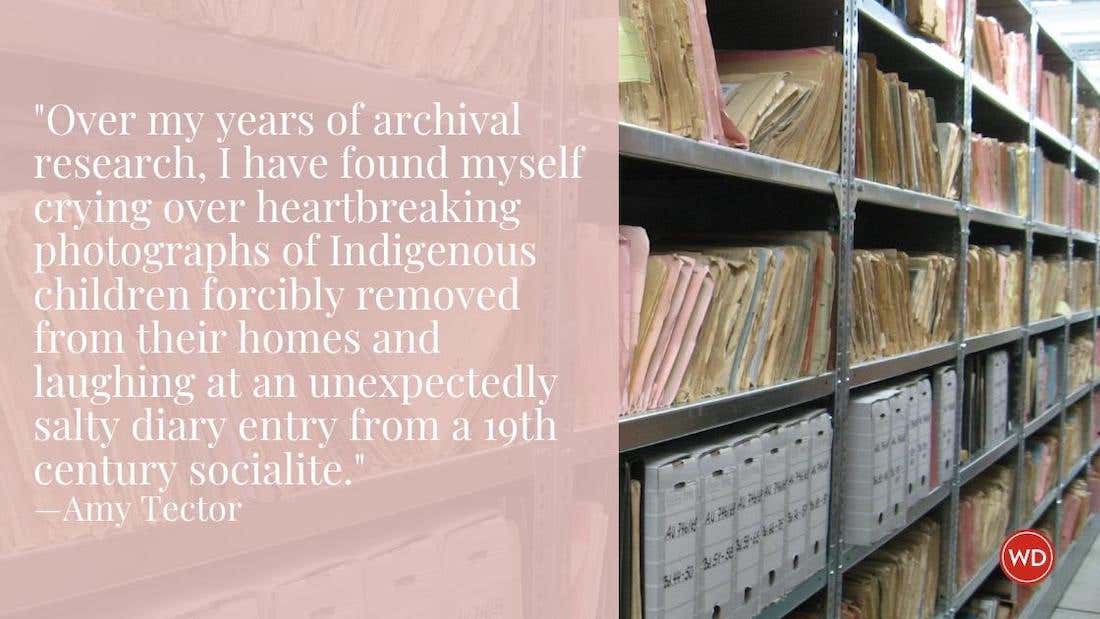How To Research Topics Like a Journalist
From in-person interviews to scouring the web for credible sources, journalist Alison Hill shares tips on how to research topics like a journalist.
"In much of society, research means to investigate something you do not know or understand." —Neil Armstrong.
I’ve covered everything from greyhound racing to eminent domain, and like many generalists, I’ve learned to become an “expert” quickly in areas I know nothing about. As a result, I’ve honed invaluable research skills.
Whether you’re writing news articles, blogs, features, video scripts, or fishing for story ideas, thorough research is the key to producing valuable content.
Research, in simple terms, is the gathering of information, and most projects require at least some digging. Most people research online and it’s easy to just “Google it” when you need quick answers. But researching like a journalist requires a broader strategy and the use of multiple sources to ensure accuracy, balance, and credibility.
The depth of research required depends on the complexity of the topic, the proposed length and scope of the article, the publication, deadlines, and your budget. Investigative pieces take much longer than a feature or news article and require a more comprehensive approach.
Journalistic research is multi-faceted, involving online searching, poring over data, records, surveys, and polls; phone calls with sources, experts, and officials; in-person formal interviews, visiting libraries and archives; and the old school way—pounding the streets and talking to contacts.
Research Tools
All you need is a computer (preferably a laptop), cell phone, Wi-Fi access, and curiosity. Get a manila folder to safely store printed documents, create a folder on your laptop for online resources, and throw a notebook and pen in your bag, to make notes in the field. You can use apps for this, but what if your phone dies?
The internet is the go-to research tool, and it has valuable resources such as government data sites. But it should be used in moderation and in tandem with other sources of information.
Start Online and Read—a Lot!
Initial online research can help you get a sense of how much a topic’s been covered and in which mediums. This will help you decide how to tackle the story and what angles to pursue. Make notes as you go and keep a record of the websites you’ve explored in case you need to provide resources with your article.
It's easy to get distracted online, so try not to fall down any rabbit holes, and be vigilant when using online sources as it’s saturated with unverified and questionable information.
I found a great tip in an online article, called “Wikifishing” which means checking out a Wikipedia page and going directly to the references.
For a blog or listicle, involving easily verifiable facts, online research will suffice, for example The World’s Fastest Ziplines. You can get information from various resources, including the company websites, and cross check facts. If you want to go the extra mile, you can make some calls.
Get Thee to a Library!
Read widely on the topic you intend pursuing, and don’t limit yourself to online articles. Libraries are a researcher’s paradise. Whether it’s a university library or your local branch, there are unlimited resources in person or accessible online. Public libraries and archives also have access to newspaper copies which you may want to utilize for your research. Some are digitized while older copies are available on microfiche.
Online Data Resources
The internet has opened many doors for journalists who like using data in their articles. Data analysis is a valuable skill and can beef up your piece. If you need government statistics on unemployment for instance, you can find all you need at the U.S. Bureau of Labor Statistics website. (*See our resources below for more information and links.)
I once wrote an article about paranormal studies conducted by U.S. universities, and my research led me to the CIA website which was fascinating to peruse, especially the declassified Stargate documents!
Phone Interviews/Conversations with Sources and/or Contacts
Before an interview, conduct plenty of research on the person and topic, so you know which questions to ask. Sometimes a phone conversation can provide leads to more knowledge and other sources, that can broaden or even change your focus. This is where your research takes on a life of its own. You’ll be surprised just how much information people are willing to share, especially experts and academics, so ask questions, even tough ones.
Boots on the Ground—Primary Research
Research online, sift through archives, newspapers, videos, court records, and surveys. But most importantly, get right down in the trenches if you can.
Seeing us staring at our computers, our editor would urge: “Get out there and talk to people!”
We were a team of 20-something investigative journalists working on a current affairs TV series and were discouraged from researching online, other than gathering basic information.
In-person meetings are the best way to get to the heart of a story. I’m not suggesting clandestine meetings with Deep Throat, although have at it if you think you’ve got a scoop. But talking to people with first-hand experience, absorbing the atmosphere, being at an event and able to viscerally describe the scene in that moment, to me is the definition of real journalism—boots on the ground and fully immersed in the story. Of course, a piece like this still needs to be backed up with additional facts and information, and maybe an alternative viewpoint, depending on the topic. But personifying a news story or feature just makes it more compelling.
Imagine writing a general piece about homelessness with just data and secondhand information. It can be factually correct and mildly interesting but compare that to going out and talking to people who are homeless, hearing their stories, and being able to describe their living conditions. It makes for a better article, and a more sincere and truthful reflection of the problem, wouldn’t you agree? Always ask permission before using someone’s real name. Many people in difficult circumstances prefer not to be identified.
Gather Your Own Data
You can find data like the number of train accidents in your state on government sites. But to go deeper and discover more details, research newspaper articles over a specific period, especially local papers, that are more likely to cover these stories. You’ll likely find further information like circumstances and names.
You can also do some “man on the street” interviews (vox pops) preferably with a camera or digital voice recorder and get different people’s opinions on your topic and use the results in your piece. Maybe someone’s answer will be so profound you’ll want to interview them further.
Social Media?
Trawl social media sites if you’re looking for trends. You may also find ideas for stories and topics. But use caution. It should be just a springboard and never used as a main source. What someone tweeted—however famous they are—is not real news. Reading social media posts is often like overhearing a heated discussion at your local bar. It does not accurately represent reality or necessarily the viewpoints of the public. It’s just one interesting window on our world, that’s all.
Attend Events
As a PBS producer covering international issues, I decided to join the United Nations Association (UNA). During a meeting, I discovered Paul Rusesabagina, the hotelier portrayed in the movie Hotel Rwanda, was visiting. I contacted the organizers and secured a 30-minute exclusive interview. I had this knowledge before other journalists and so, attending that one meeting paid off.
Joining online groups and subscribing to newsletters and publications can be useful for research purposes. Include any nonprofits or activist groups in areas that interest you.
Freedom of Information Act
If you experience difficulties accessing government information, just remember since 1967, the Freedom of Information Act (FOIA) allows members of the public (including journalists) the right to request access to records from any federal agency.
And finally, a word of caution. If you arrange an in-person meeting with a contact over the phone or online, make sure it’s in a public place like a café, and always tell someone where you’ll be. Text a friend or significant other as soon as you get there and when you leave.
Stay safe and happy hunting.
*Resources:
Alison Hill is a freelance writer, journalist, and Emmy-nominated producer who writes for print and online publications. Since 2001, Alison has been a regular guest commentator on BBC radio news shows discussing US politics and current events. Before going solo, she was a PBS producer and director and also worked as an investigative journalist for a Welsh TV series. From hosting TV shows and creating online content to going undercover with a hidden camera, she’s done it all. Alison grew up in a tiny village in Wales and speaks fluent Welsh. She’s an avid hiker, who also loves camping, kayaking, and reading. She now lives in South Carolina with her husband, 8-year-old daughter, and two rescue cats.









